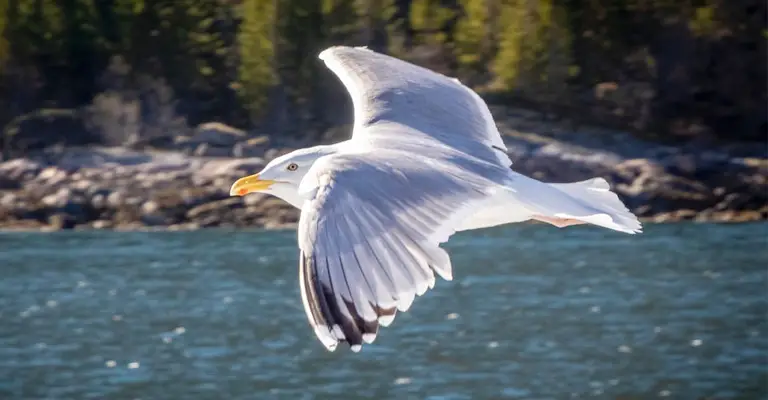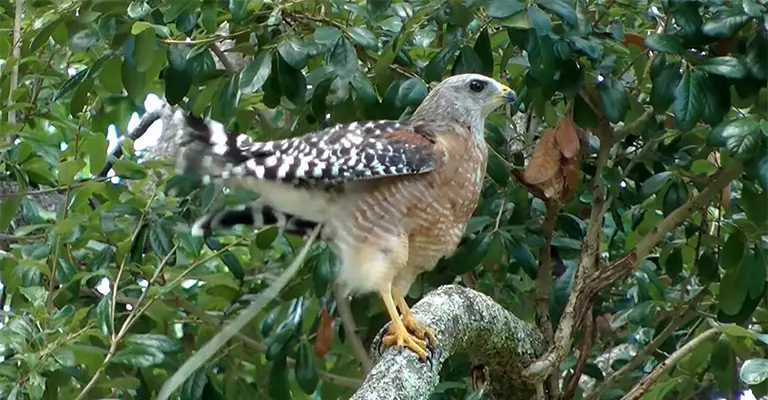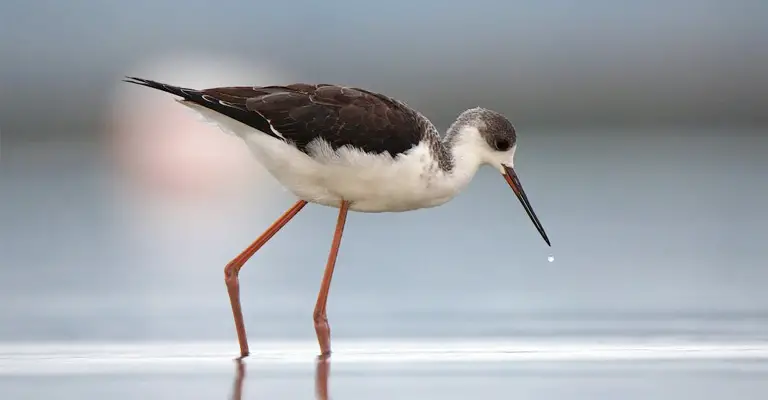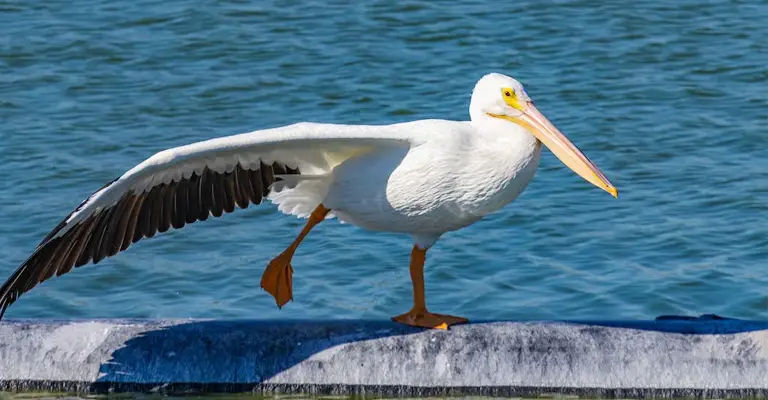The avian world, with its vibrant plumage and melodic calls, has long captivated human fascination.
Yet, amidst the awe-inspiring flights and intricate behaviors of birds, a question lingers: do birds pee? The manner in which birds excrete waste has puzzled and intrigued both casual observers and scientific researchers.
While mammals eliminate waste through urine and feces, the avian excretory system operates differently due to the unique challenges of flight.
Exploring the mechanism behind bird waste expulsion not only sheds light on the physiological adaptations of these remarkable creatures but also underscores the diverse strategies that life employs to thrive in various environments.
To unravel the mystery of whether birds pee, we delve into the intricate biology of avian excretion, uncovering the captivating adaptations that define their existence.

Do Birds Pee?
That’s a very interesting question. Birds do not pee in the same way as humans do because they have different urinary systems.
Here are some points to explain how birds pee:
Birds Do Not Have A Bladder Or A Urethra:
Unlike mammals, birds do not store urine in a bladder or expel it through a urethra. Instead, they have a single opening called a cloaca, which is used for excreting waste, mating, and laying eggs.
Birds Convert Nitrogen Waste Into Uric Acid:
Birds need to get rid of nitrogen waste, which is produced by the breakdown of proteins in their bodies.
However, instead of converting it into urea, which is diluted in water and forms urine, birds convert it into uric acid, which is a white, solid substance that does not dissolve in water.
Birds Excrete Uric Acid Along With Feces:
Birds do not separate their liquid and solid waste. They mix their uric acid with their feces, which are mostly undigested food particles, and expel them together as a paste-like substance.
This is what you see when a bird poops on your car or your head.
Birds Conserve Water And Reduce Weight By Not Peeing:
Birds have evolved to not pee because it helps them conserve water and reduce weight. Water is essential for birds, especially those that live in dry habitats or fly long distances.
By not producing watery urine, birds can avoid dehydration and save water for other bodily functions.
Also, by not carrying a bladder full of urine, birds can reduce their body weight and fly more efficiently.
So, the answer to your question is: No, birds do not pee like humans do. They excrete urine in a solid form along with their poop. This is an adaptation that helps them survive and thrive in different environments.
How Does A Bird Urinate?

Certainly, here’s a breakdown with descriptions for each point:
Absence Of Urinary Bladder In Birds
Unlike mammals, birds do not possess a separate urinary bladder to store liquid waste. Instead, they have evolved a different mechanism for waste elimination that is more suited to their lightweight and flight-oriented bodies.
Uric Acid Production
Birds produce waste in the form of uric acid, a white, paste-like substance. This is a result of their efficient metabolic processes, which break down nitrogenous compounds from protein metabolism.
Unlike mammals that eliminate excess nitrogen primarily through liquid urine, birds convert it into solid uric acid.
Combined Elimination
Birds expel waste, including uric acid and feces, through a single opening called the cloaca. This is a multi-functional opening that serves both excretory and reproductive purposes. The uric acid and feces are mixed together in the cloaca before being eliminated from the body.
Efficient Water Conservation
The adaptation of excreting uric acid instead of liquid urine serves the purpose of water conservation. By producing a concentrated waste product, birds minimize water loss and maintain hydration levels critical for their high-energy activities, especially flight.
The Role Of The Cloaca:
The cloaca is a versatile opening found in birds, reptiles, and other animals. In birds, it’s where the digestive, reproductive, and excretory systems converge.
The expulsion of uric acid and feces through the cloaca highlights the efficiency of this system, allowing birds to manage multiple functions with minimal weight and complexity.
Do Birds Pee Clear Liquid?

Certainly, here’s a breakdown with descriptions for each point:
No Clear Liquid Urine In Birds:
Birds do not excrete clear liquid urine in the same way mammals do. While mammals have urinary bladders to store and expel liquid waste, birds have evolved a different mechanism of waste elimination that suits their unique physiological needs, particularly related to flight.
Uric Acid As A Waste Product:
Instead of excreting liquid urine, birds produce waste in the form of uric acid. Uric acid is a concentrated waste product resulting from the breakdown of nitrogenous compounds, mainly from protein metabolism.
Unlike mammals, birds do not eliminate nitrogenous waste through liquid urine; they convert it into solid uric acid.
Semi-Solid Uric Acid And Feces:
Birds expel waste, including uric acid and feces, through a single opening called the cloaca. The uric acid is mixed with feces, resulting in the characteristic white and brown components of bird droppings.
The cloaca serves as a versatile opening for both waste elimination and reproductive functions.
Uric Acid’s Water-Saving Advantage:
The adaptation to excrete uric acid instead of liquid urine is advantageous for birds due to water conservation.
The concentrated nature of uric acid means less water is required for waste elimination.
This is crucial for birds’ efficient hydration management, especially given their flight requirements and the need to maintain a lightweight body.
The Importance Of Cloacal Function:
The cloaca is a fascinating adaptation that allows birds to perform multiple functions through a single opening. This includes waste elimination, reproduction, and sometimes even respiration.
While birds do not excrete clear liquid urine, their efficient waste elimination strategy, using uric acid and the cloaca, is a testament to the unique ways in which evolution shapes life forms for their specific niches and challenges.
Do Birds Have Bladders?

No, birds do not have urinary bladders like mammals do. Unlike mammals, birds lack a separate and expandable organ specifically dedicated to storing liquid waste, such as urine.
Instead, birds have evolved a different mechanism for waste elimination that aligns with their lightweight and flight-adapted bodies.
Birds excrete waste, including uric acid, through a single opening called the cloaca, which serves as a multi-functional opening for waste elimination, reproduction, and in some cases, respiration.
The absence of a urinary bladder contributes to the overall efficiency of birds’ physiological adaptations, allowing them to maintain their flight capabilities without the added weight and complexity of a bladder.
Do Birds Pee And Poo From The Same Hole?
Yes, birds excrete both urine and feces from the same opening called the cloaca. The cloaca is a multi-functional opening located at the end of a bird’s digestive and reproductive tracts.
It serves as a single exit point for waste elimination, reproduction, and in some cases, respiration. In birds, uric acid, a concentrated waste product, is mixed with feces in the cloaca before being expelled.
This is why bird droppings often consist of both a white, chalky substance (uric acid) and a darker, more solid component (feces).
The cloaca’s versatility is an adaptation that helps birds manage multiple physiological functions efficiently, including waste elimination and reproductive activities.
FAQ
No, birds do not urinate in the same way as mammals. They lack a bladder to store liquid waste. Instead, birds excrete uric acid, a white paste-like substance, along with feces.
The white substance in bird droppings is mainly uric acid. It’s a concentrated waste product that birds excrete to conserve water and energy, essential for their flight-adapted lifestyle.
Having a bladder adds weight to the body, which can hinder flight. Birds have evolved to be lightweight for efficient flying, so they eliminate waste in the form of uric acid, which doesn’t require as much water as liquid urine.
Birds expel waste through their cloaca, a single opening that serves as the exit point for both urine and feces. The uric acid and feces are expelled together, resulting in the characteristic white and brown components of bird droppings.
While not exactly like mammalian urine, uric acid in birds serves a similar function by eliminating waste from the body.
Although it’s not liquid like urine, it’s the avian equivalent and plays a crucial role in conserving water and maintaining its unique physiological balance.
Conclusion
In the world of ornithology, the question “Do birds pee?” unveils a fascinating saga of adaptation and evolution.
While birds lack the traditional urinary system found in mammals, they have ingeniously developed alternative methods to efficiently manage waste and maintain flight prowess.
Uric acid, a concentrated waste product, is excreted in the form of white, semi-solid material, often mistaken for bird droppings.
This remarkable adaptation highlights the interconnectedness between form and function in the natural world. The absence of conventional urination in birds serves as a reminder that life’s diversity is not confined to visible appearances alone, but extends to the intricacies of internal biology.
The journey into avian excretion not only quenches our curiosity but also emphasizes the inexhaustible wonders of the animal kingdom.